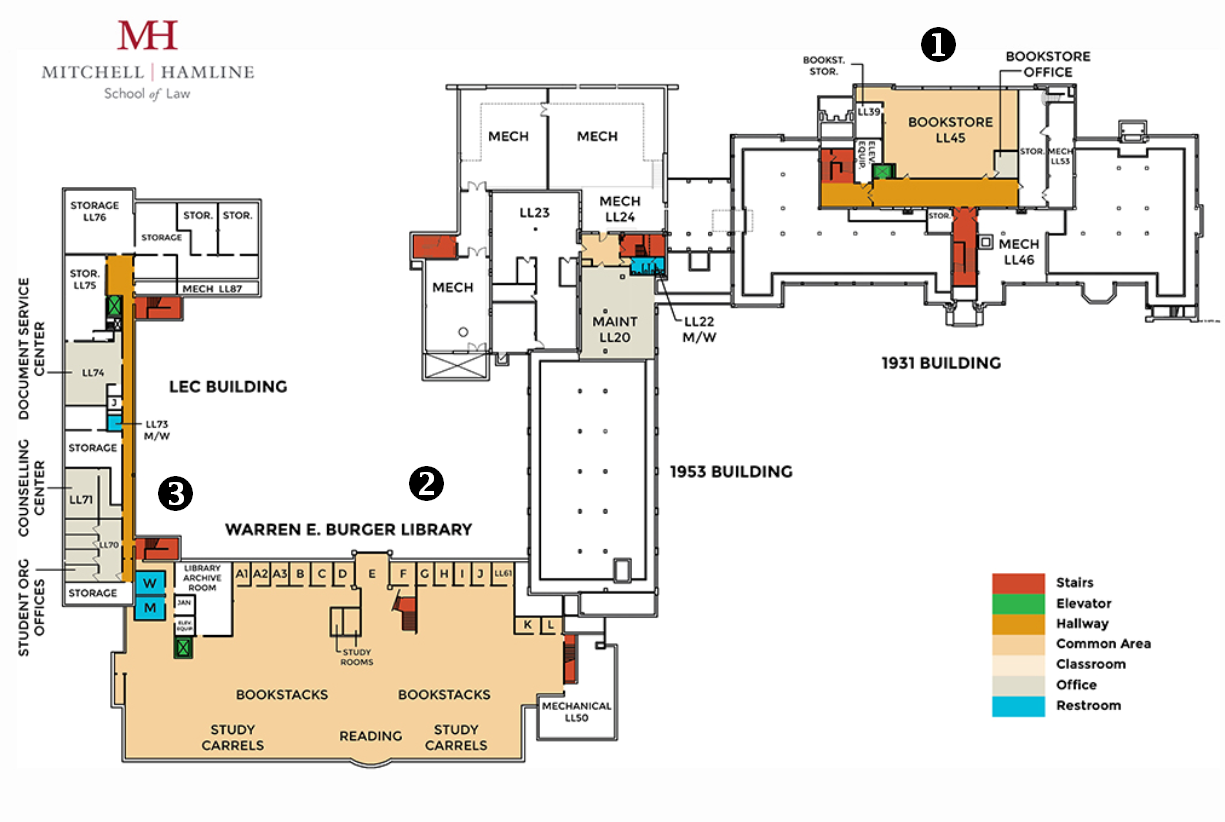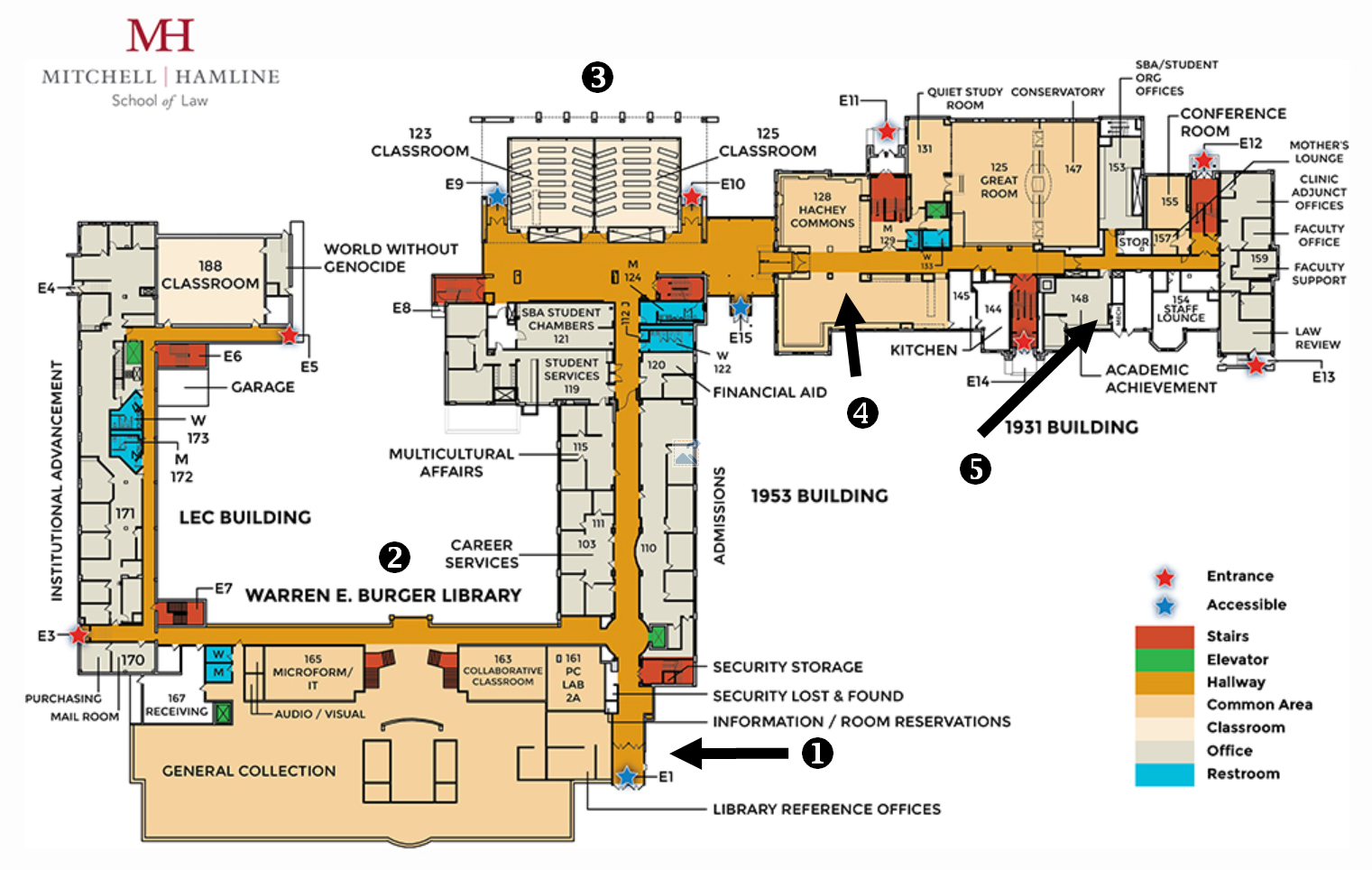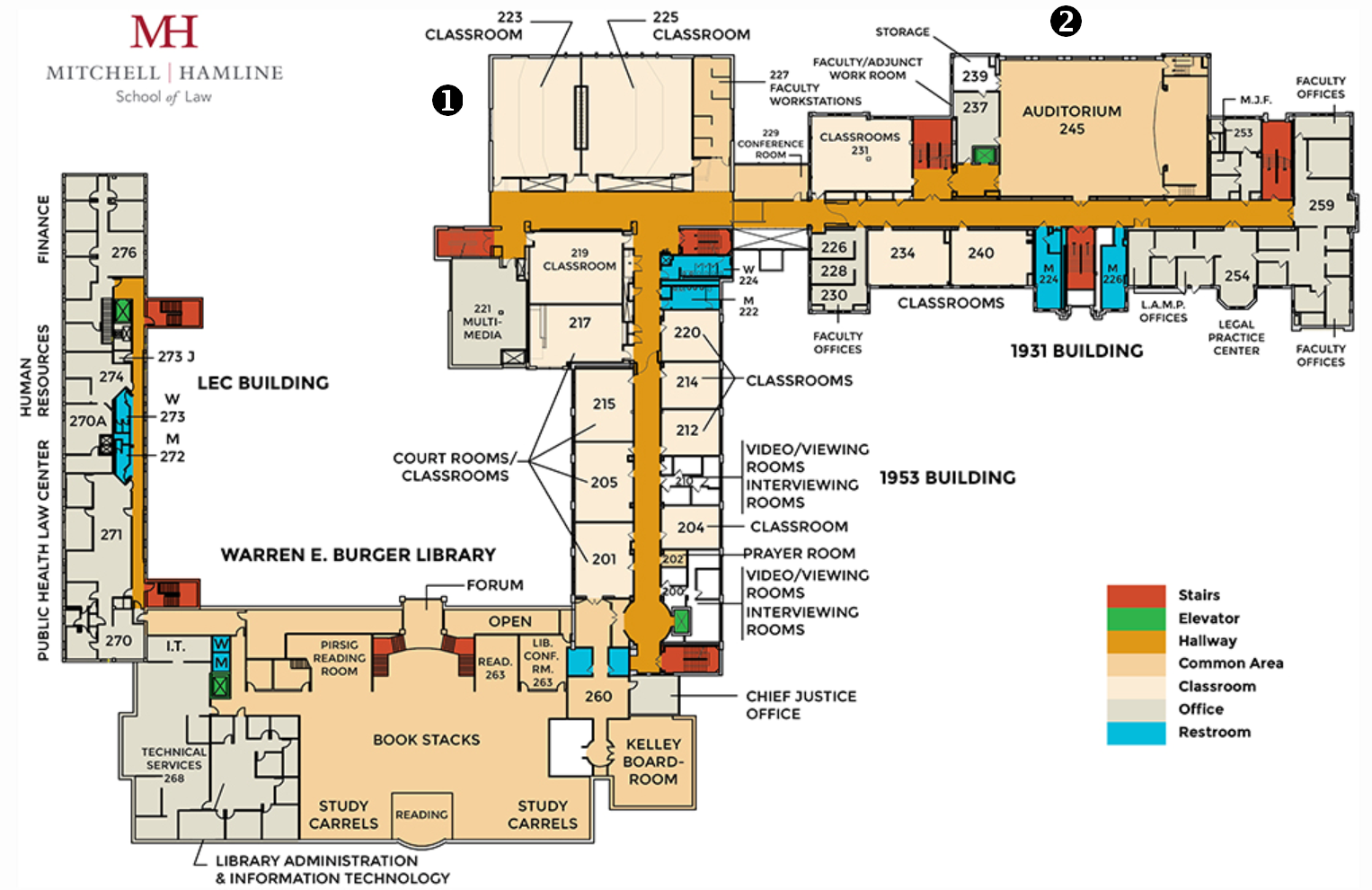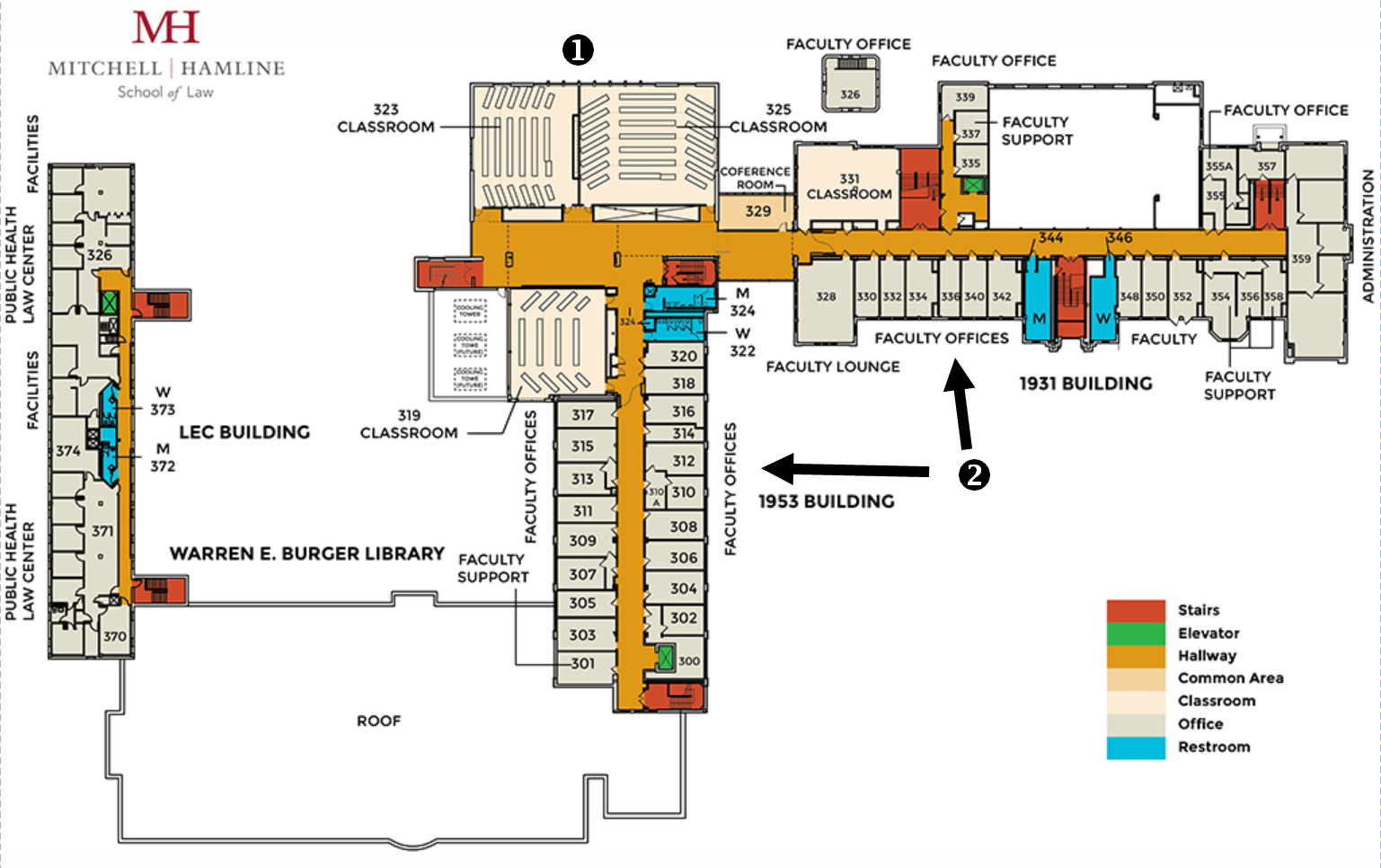Before Law School
-
Before Law School Reading List
- Thinking Like a Lawyer: A New Introduction to Legal Reasoning, Frederick Schauer
This is an excellent introduction to legal reasoning. It discussed topics such as rules, precedent, authority, analogical reasoning, the common law, statutory interpretation, legal realism, judicial opinions, legal facts, and burden of proof. - The Common Law, Oliver Wendell Holmes
Charles Barzun of the University of Virginia School of Law suggests The Common Law as a good introduction to the kinds of cases and writing that law students can expect. “The book is mostly about dry cases from a long time ago which are filled with concepts whose meaning and significance are obscure,” Barzun said. “But that is precisely why it will give [incoming students] a flavor of their first-year courses in contract, torts and property. Plus, it is a legal classic.” - Finding Your Voice in Law School: Mastering Classroom Cold Calls, Job Interviews, and Other Verbal Challenges, Molly Bishop Shadel
This book offers advice about preparing for classes, maintaining professionalism, getting ready for interviews and networking, mock trials, moot courts, oral arguments, and more. The content is drawn from interviews with actual law students, just like you, as well as attorneys from leading law firms around the nation. - The Federalist Papers, “Publius” (Alexander Hamilton, James Madison, and John Jay)
These 85 essays written by the leading drafters of the Constitution itself were published to advocate for the ratification of the fundamental document that underpins our American legal system and government. A must-read for anyone studying Constitutional Law. - Reading Like a Lawyer: Time Saving Strategies for Reading Law Like an Expert, Ruth Ann McKinney
Reading law quickly and accurately is an essential skill of both an attorney and a law student. This book offers a great deal of practical advice and time-saving techniques for reading the law with an eye towards critical reasoning and efficiency. - Succeeding in Law School, Herbert Ramy
Professor Ramy is the Director of Suffolk University Law School’s Academic Support Program, and addresses common questions and problems that first-year law students have brought up to him over his years of experience. Professor Ramy’s expertise and entertaining writing style make this book a must-read for any incoming 1L student. The book addresses effective legal analysis, critical reading skills, interviewing techniques, and more in a comprehensive guide to law school success. - The Eight Secrets of Top Exam Performance in Law School, Charles Whitebread
This book addresses key ways to add points to your law school exam scores including issue-spotting techniques, exam time management, and how to avoid hidden traps of using IRAC formatting while still doing strong legal analysis. - Legal Analysis: The Fundamental Skill, David Romantz and Kathleen Vinson
Learning how to apply the rule of law to new fact patterns is the foundational and essential skill of the attorney and law student. Romantz and Vinson demystify this process and explain the critical reasoning skills needed to break down a legal problem and build a strong legal analysis to reach legal solutions. - Bridging the Gap Between College and Law School: Strategies for Success, Ruta Stropus and Charlotte Taylor
Law school is significantly different from undergraduate college studies. This excellent and popular book helps students make the transition to new modes of thinking. Unlike other law school introductory texts, Stropus and Taylor lay out the context of law school, why the law is taught the way it is and not just how, and gives students the opportunity to practice the problem-solving process rather than just describing it.
- Thinking Like a Lawyer: A New Introduction to Legal Reasoning, Frederick Schauer
-
What to Bring to Law School
Law school is a little more complex than undergraduate study. What will you need to be prepared for the extra reading, extra writing, and more intense courses?
- Writing Supplies. You’ll go through untold amounts of pens, pencils, and notebooks throughout your law school career. Best to find writing supplies you like and stick with them, especially if you can purchase them in bulk.
- A bookstand. This is an often overlooked piece of law school equipment that will help reduce neck and back strain as you read your law school books and take notes. Bookstands can be found online for a handful of dollars. Worth every penny of the investment.
- Post-its, especially the little flags and tabs. These can be essential for tabbing diagrams and critical pages in textbooks, bookmarking pages of statutory books such as the Uniform Commercial Code, or marking up your copy of The Bluebook. This is another item that is frequently given away by organizations that have tables, but it’s also good to have your own stash.
- Folders, binders, paper clips, and staples. Organization is a key success skill in law school. Fasteners and places to put the massive volume of handouts, readings, feedback sheets, and more are a law school essential to tame the content into manageable pieces and keep it appropriately corralled in one place.
- Laptop. While taking handwritten notes is highly encouraged to improve retention of lecture material, there will be a lot of typed written assignments throughout law school. You will be required to write at least one long research paper of 8,000+ words (30+ pages.) Most exams will be given online. The library is only open so many hours of the day – relying on the computer lab can leave you stranded when you’ll need it the most. A good laptop will save you in a bind. You won’t need a high-end gaming platform – a basic computer with long battery life and a good keyboard will suffice.
Note: almost every law student has dealt with a computer crashing in law school. Have
all of your critical law school documents back up automatically to a cloud storage such as OneDrive or Google Drive. Your school account will have one terabyte of cloud storage with it in OneDrive – more than enough for all your documents, no matter how big a research project you work on. - Your own printer. Having your own printer may not be an absolute necessity, but the school charges five cents per page to print on-campus. Even with a $10 per semester printing credit, it’s likely you’ll need to put money in over the course of the semester for printing, more if you want color printing. A good laser printer can cost less than $100 and last for several years, and reams of paper are relatively inexpensive.
- Resume paper. Most employers will take electronic applications today, but it’s still a highly polished professional move to show up with several hard copies ready to give to the interviewer or panel printed on nice resume paper. Purchase paper that has a higher weight than standard computer paper, and avoid bright colors. It will help you stand out as a candidate and give a strong sense of your organizational and planning skills.
- Business formal outfits (at least two). You will need at least two sets of business formal attire while in law school for interviews, networking events, and certain law school functions that involve professional practice.
- Backpack or rolling crate with a laptop pouch. Let’s face it: law school books are heavy. Most of what you will read will be 800 pages on up. You’ll likely have at least two classes per day, perhaps three depending on your schedule. Erwin Chemerinsky’s Constitutional Law textbook is nearly five pounds by itself. Throw in some study aids and maybe a water bottle, and it won’t take long before you have quite a load. A good backpack or other carrying option is a law school essential.
- Good headphones. There is a wealth of helpful lecture content available to watch and listen to throughout law school and bar prep. Whether you plan to study in the library or just want to listen to these on the go on a smartphone or tablet computer, a good set of lightweight headphones can help block out the distractions and keep you focused.
Where to Find the Bookstore and Other On-Campus Essentials
-
Lower Level

1. The Bookstore. Can be found in the Lower Level, down the stairs next to the Hatchey Commons.
2. Study Rooms and Study Carrels. Can be found in the Lower Level of the Warren E. Burger Library, down the stairs next to the Circulation Desk. Carrels can be reserved for a semester at a time from Circulation Desk. There are additional carrels on the Second Level of the library.
3. Counseling Center. If you need a counselor to talk to for any reason, Counseling Services is in the Lower Level. Walk past the Library from the Security Desk on the First Level, turn right, go down the first set of stairs on the right, and Counseling Services is straight in front of you.
-
First Floor

1. The Security Desk. If you have questions about where to find anything, the Security Desk at the Summit entrance to the school can point you where to go.
2. The Warren E. Burger Library. The Library is in the front of the school facing Summit Avenue. You can check out materials, use the tables and desks for study space, get research tips from a reference librarian, use the printing center, or even just play a game of chess in the Library.
3. 123 and 125 Classrooms. These are the two primary classrooms you’ll likely need to find in your first year of law school. Many of your first-year courses will be in these two rooms.
4. Hachey Commons. The Commons is a frequent student study and collaboration space. If you’re hungry, there’s a small grill with a gourmet chef that serves lunch each day and a self-serve convenience market for after-hours snack breaks.
5. Academic Excellence. Mitchell Hamline is committed to academic support for every single student. If you have a question, want to request a tutor, or check out study aids, Academic Excellence has you covered.
-
Second Floor

1. 223 and 225 Classrooms. These are also frequently used classrooms for first-year courses. They are directly above 123 and 125.
2. The Auditorium. Large events are often held in the Auditorium.
-
Third Floor

1. 323 and 325 Classrooms. Like 123/125 and 223/225, these large classrooms are frequently used for large-group seminar courses. You will more likely use them in your second and final year studies.
2. Faculty Offices. Many of your professors’ offices are located on the Third Level, though a few are housed on the Second Level. Check with your individual professor where his or her office is located. Professors will typically hold open hours in their offices for students to stop in and ask questions or just say hello.
Your First Weeks of Classes
-
How to Prepare for Your Classes
- Look at your syllabus to determine your reading assignment.
- Look at the table of contents to put the reading assignment into context with the broader topic. Figure out what that section of reading is supposed to teach you.
- Create a framework for your brain to process the reading:
- Read the corresponding topic in your Kaplan 1L book.
- Watch a Kaplan lecture on the topic.
- Read.
- Follow the critical reading method taught in Legal Methods.
- Summarize and paraphrase the reading as you go, don’t highlight and underline without notes to accompany it in the margins.
- Brief every case you are assigned to read.
- Follow the critical reading method taught in Legal Methods.
- Digest the material and prepare for class.
- Bring your notes and case briefs to class so you can answer questions you had while reading, add pieces you missed, note nuances the professor emphasizes, participate in the discussion, etc.
Your professors will often “cold-call” students in each class to give the details of the day’s cases. Cold-calling means that you will be chosen at random to answer the professor’s questions. Being unprepared can negatively impact your grade. Reading thoroughly and having well-prepared case briefs will keep you looking sharp, even if you don’t have all the answers the professor is looking for right away.
Legal Methods
